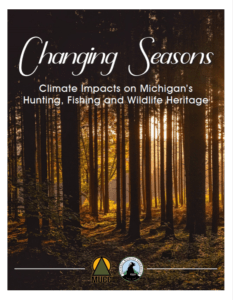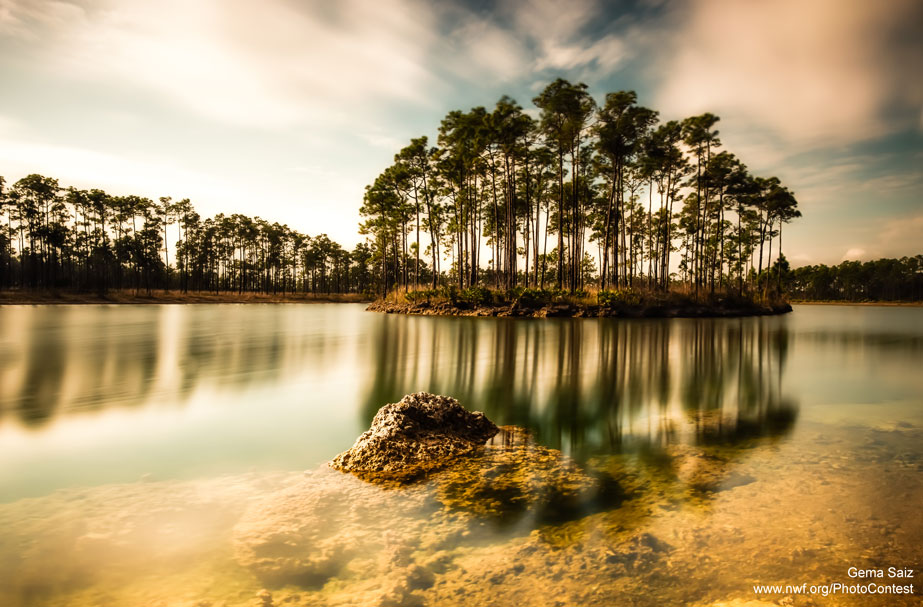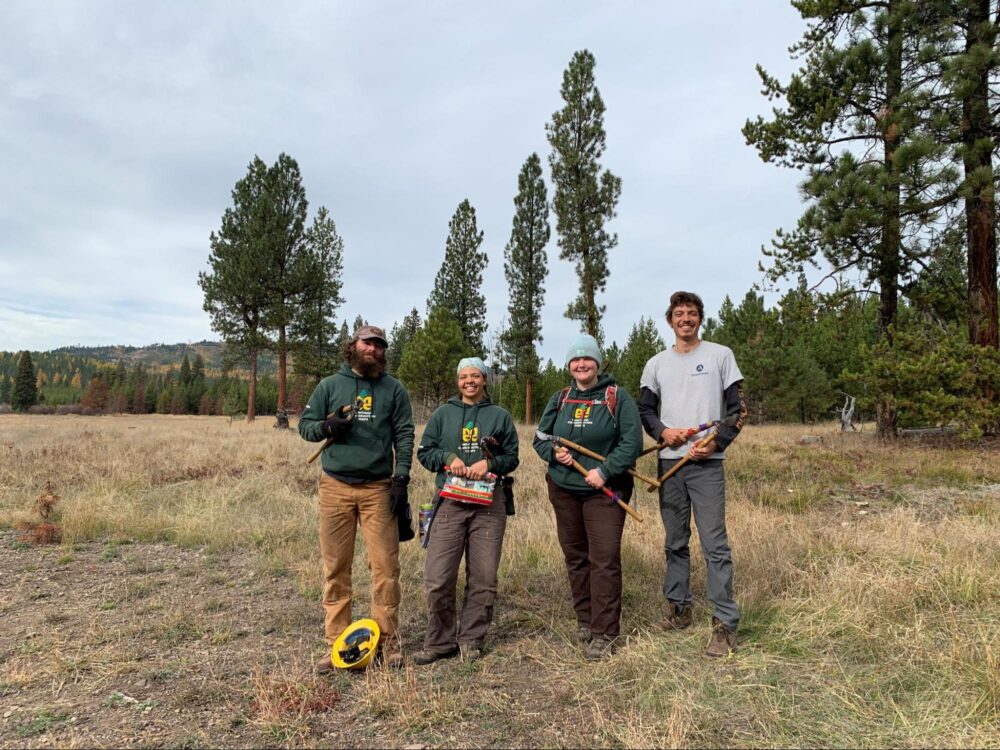We have much more to do and your continued support is needed now more than ever.
Michigan’s Outdoor Recreation Future and Climate Change
Climate change is affecting our fish, wildlife, and our way of life
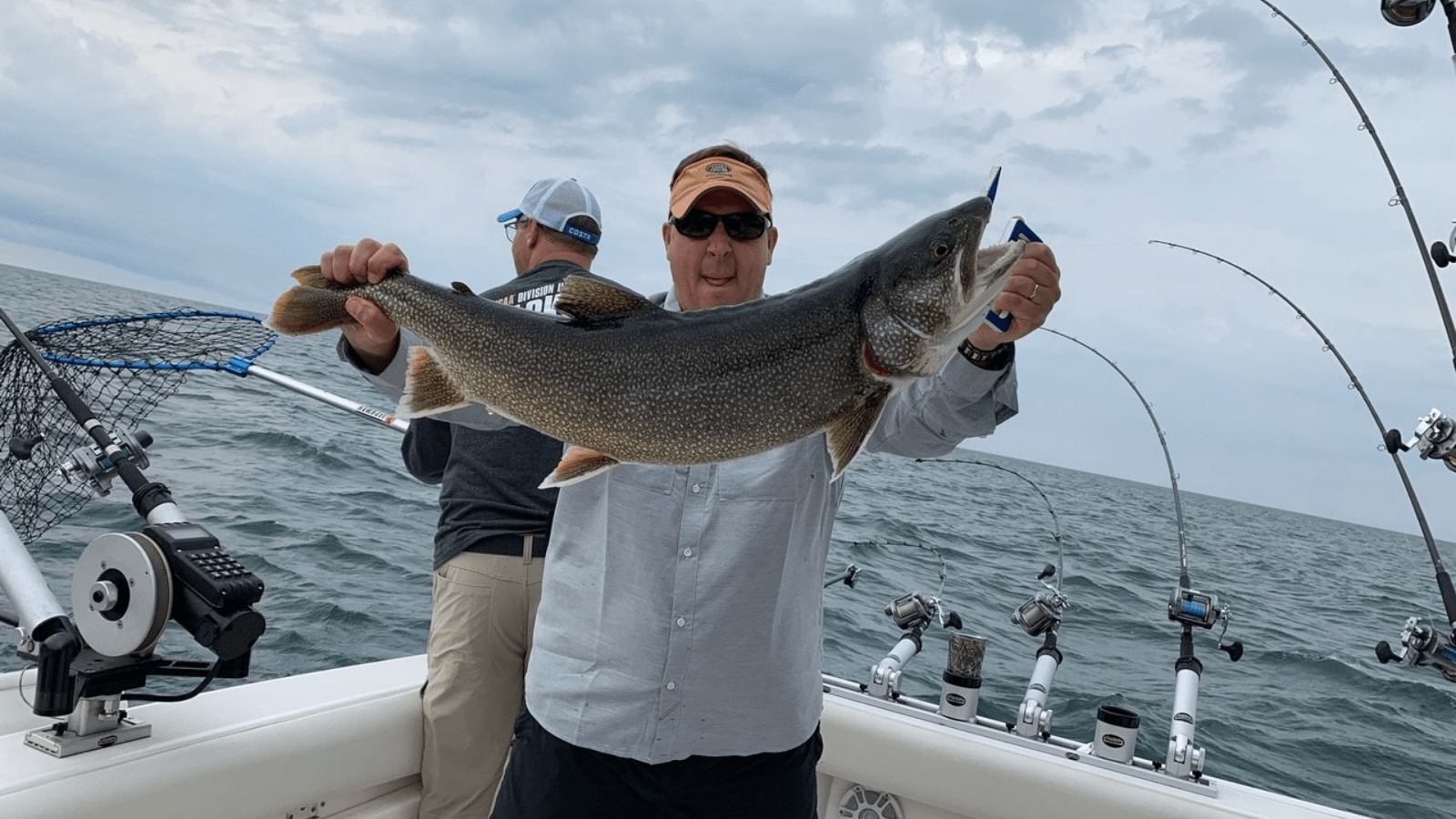
Nobody needs to tell Lake Michigan charter fishing boat Captain Denny Grinold that the climate is changing.
“Last year I had to cancel 59 trips due to windy days or bad weather,” says Grinold. “Comparing it to 20 or 30 thirty years ago, we’d have maybe had 15 trips canceled.”
The increased number of “blow days”—times where boats can’t travel safely due to high winds—isn’t just frustrating to anglers who’d hoped to land a King Salmon. It’s a financial hit to small business owners like Grinold who depend on sport fishing for their livelihood.
“The wind seems to pick up now in mid-August and doesn’t want to stop until late September, if we’re lucky,” says Grinold, who operates his 33-foot charter “Old Grin” out of Grand Haven. “We’re getting a lot more Northeast winds compared to just eastern winds and this shift in weather patterns has hurt a lot of charter guys.”
Indeed, a changing climate is bringing more frequent and violent storm events to the Great Lakes region—and more days when you can’t get on the water at all. This is just one example of how climate change is impacting outdoor recreation in Michigan included in Changing Seasons, a new report from Michigan United Conservation Clubs (MUCC), and the National Wildlife Federation Great Lakes Regional Center.
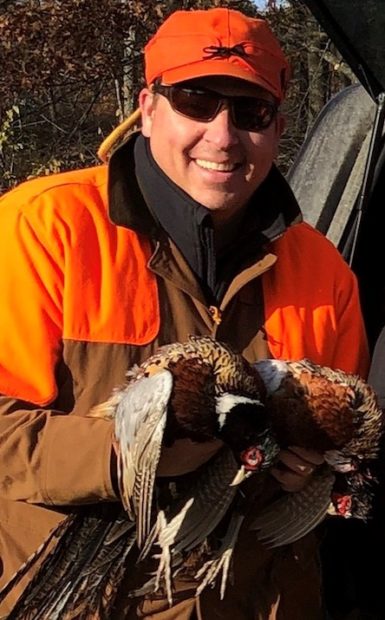
Michigan, like other upper Midwest states, has a rich history of outdoor recreation. Whether it is gathering with friends and family annually at deer camp, spending hours alone on a quiet trout stream in search of the right dry fly combination, or hiking a trail in the woods with binoculars looking for a songbird you’ve never seen. This tradition has helped the state establish one of the most robust outdoor recreation economies in the nation, with hunters and anglers contributing more than $11.2 billion annually to the state economy, according to a Michigan United Conservation Clubs economic report. Outdoor recreation as a whole generates $26.2 billion in consumer spending, according to the Michigan Office of Outdoor Recreation Industry.
But as hunters, anglers, and outdoor enthusiasts are learning, climate change is already affecting fish and wildlife habitat, warming trout streams that require cold water for natural reproduction, and even altering waterfowl migration patterns.
Changing Seasons details the challenges ahead:
· New wildlife disease outbreaks—like Epizootic Hemorrhagic Disease (EHD) in deer—are becoming more common because warmer winter temperatures favor the biting insects that spread the virus.
· With shorter and less severe winters, weather-induced deer mortality is declining. This means a larger herd for hunters but more agricultural and forest damage, especially in certain areas of the Upper Peninsula.
· Woody species like trees and shrubs thrive amid increased atmospheric carbon dioxide, a major global warming gas. But this results in a decline in the ecological complexity of forest lands that helps diverse wildlife populations thrive.
· Pheasants, grouse and woodcock live in unique Michigan habitat that is being rapidly degraded and developed. Intense spring rain events are also flooding out upland bird nests while summer droughts reduce the insect populations the game birds feed on.
· Inland trout in Michigan—sometimes described as the “canary in the coal mine”—are an indicator species of the overall health of the ecosystem and the first impacted by changes in water temperatures. One culprit is dams.
Addressing these challenges will require wise investments both in habitat protection and natural infrastructure. But as America moves toward cleaner energy solutions, like wind or solar, care must be taken not to harm wildlife—through careful siting—or reduce access to public lands and waters.
As officials begin work on Gov. Whitmer’s Healthy Climate Plan the Michigan outdoors community can play an active role to ensure fish and wildlife are considered.
People who enjoy outdoor recreation span all political boundaries and socio-economic classes, creating a path to consensus on what has been a contentious issue for many years. Over the past year during the COVID-19 pandemic, millions of Americans have discovered or rediscovered the physical and mental health benefits of outdoor recreation as a socially-distant way to get out of the house. The fish and wildlife they enjoy—whether fishing, hunting, or simply watching—need climate mitigation solutions.
A coalition of conservation groups—including MUCC and the National Wildlife Federation Great Lakes Regional Center—are meeting to discuss the impacts of climate change in Michigan and what steps can be taken to mitigate its impacts on fish and wildlife. We are taking on this challenge to help fish and wildlife thrive, but to also ensure we pass along the state’s rich outdoors legacy to our kids, grandkids, and future generations.
That means protecting clean water, maintaining access to public lands, and making science-based decisions on wildlife and forestry management. We need new incentives and investments to address the ongoing effects of climate change. This should include investing in strategies for Great Lakes coastal resiliency that protects natural shorelines, provide incentives for on-the-ground conservation projects, and promote responsible low-carbon energy development like wind and solar while protecting wildlife on public land through careful siting.
Learn more in the Changing Seasons report and the National Wildlife Federations Great Lakes Congressional Agenda for 2021.

